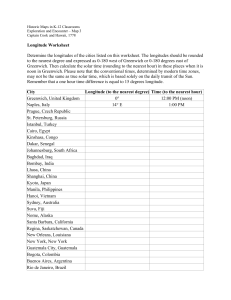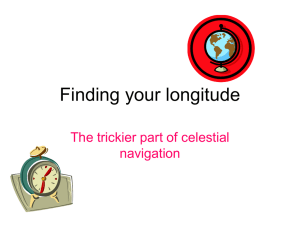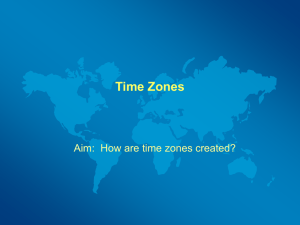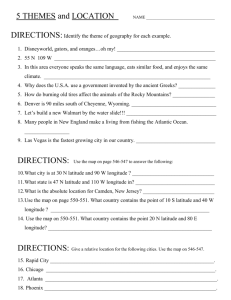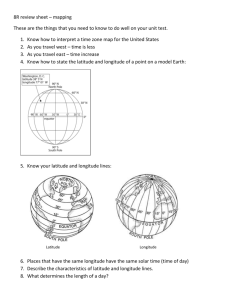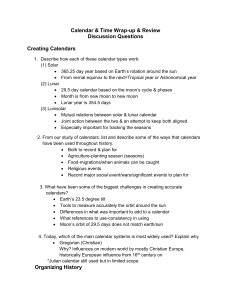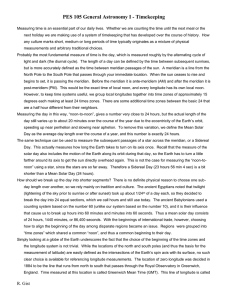Time and the Earth*s Rotation
advertisement
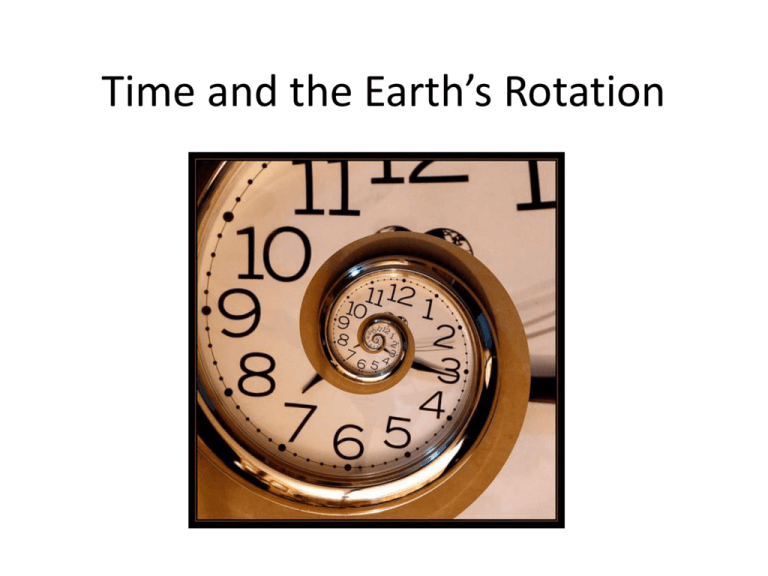
Time and the Earth’s Rotation Ticking away the moments that make up a dull day • Time is a function of math, therefore it’s man made • Animals do not understand the concept of time, sorry – Their day is controlled by circadian rhythms (internal instinctive clock) – Circadian rhythms is based on the Sun’s position across the sky – High noon refers to the Sun’s highest position across the sky Before time, people all over the world slept, worked, played and experienced their lives based on patterns from sequences of events • Modern Calendar – 1n 1580, Pope Gregory XIII, created the Gregorian Calendar – It became the official, World calendar – It was based on the 12 lunar months of 29.5 days and 365.25 days a year. His calendar accuracy repeats itself every 400 years, including the addition of leap year. – BC = Before Christ (The conception of Jesus of Nazareth) – AD = Anno Domini (In the year of our lord) Early attempts at measuring time • • • • • • T-Square = Egypt Sundial = Rome Water Clocks = Egypt & Greece Hourglass (Sand) = Ancient Sailors Incense & Candles = Early Churches Mechanical Clock = Europe in Middle Ages Before Standard Time • Cities, towns, countries, ... all used different times • The Modern Era and the Industrial Revolution and the invention of James Watt’s steam engine, resulted in the formation in the Universal Standard Peace Time James Watt Steam Engine Universal Standard Time • The universal time was established in 1883 • Hours were equally spread from noon to midnight • This resulted in 24 equal earth time zones (7 in the U.S.) • Earth rotates from west to east in 24 hours • It takes the Earth 365.25 days to orbit the Sun • 360 degrees = a circle • 24 hours = 1 day • 24 imaginary lines of longitude pass from the north to south poles make up each hour of the Earth day, one every 15 degrees of rotation 24 Longitude Lines • Prime Meridian or 0 degrees longitude marks the location of the Royal Greenwich Observatory, Greenwich, England where the exact universal peace time is kept for the Earth • 180 degrees longitude is known as the International Date Line or where one day turns into the next. They are exactly 12 hours apart FYI • Time keeps changing all over the Earth • ½ of the Earth is always light • ½ of the Earth is always dark • The Sun only appears to rise in the east and set in the west
